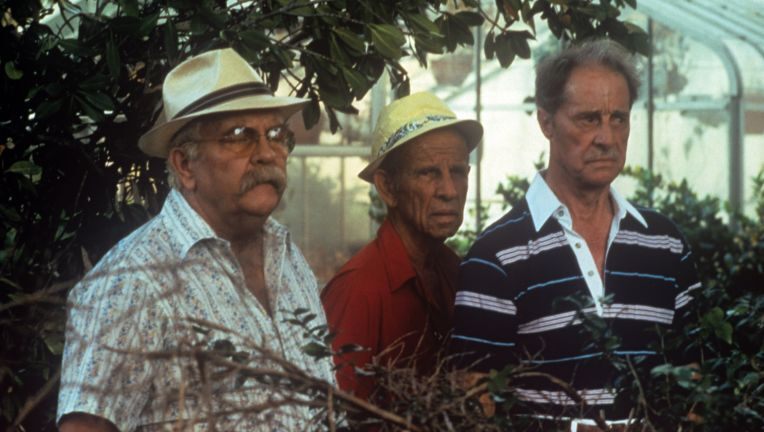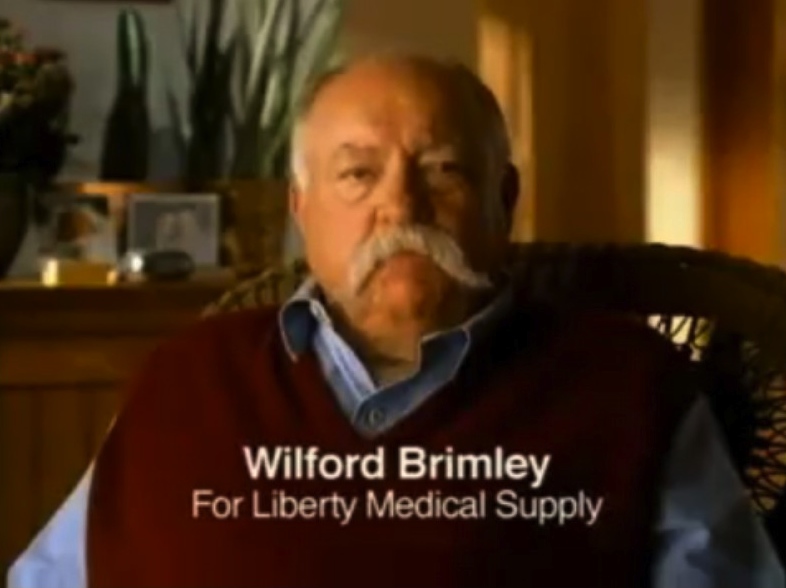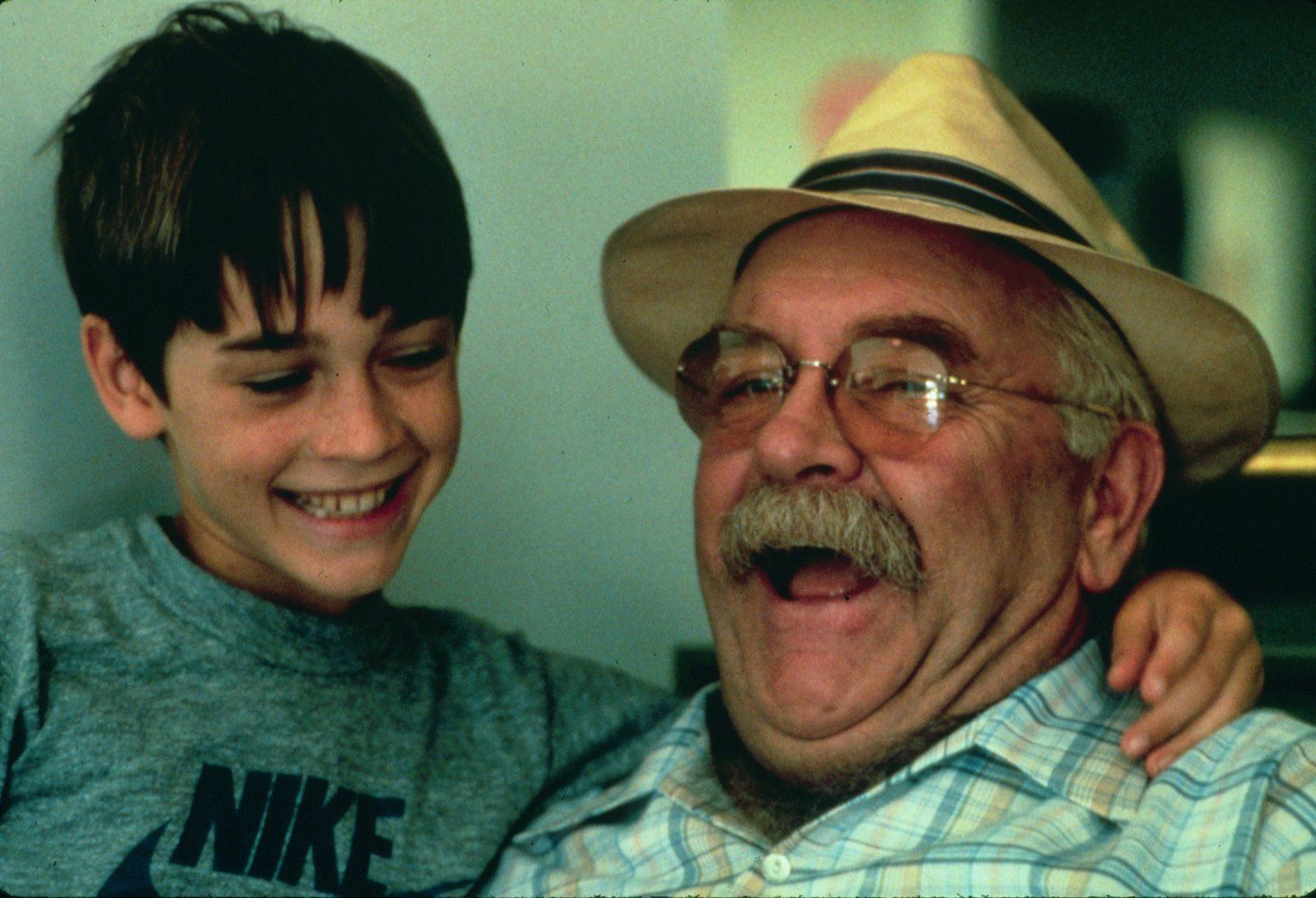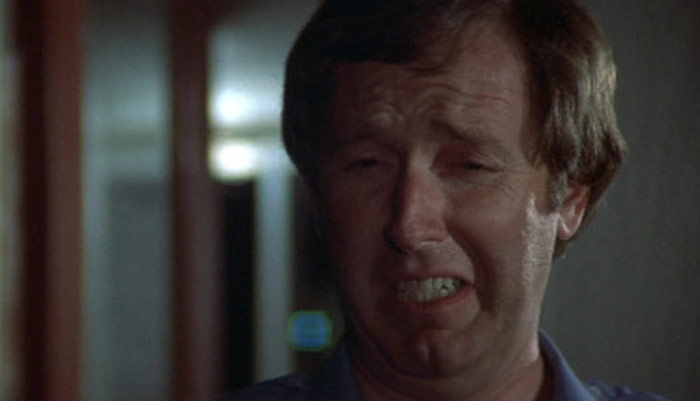 Anthony Wilford Brimley, an American actor and talented jazz singer who recorded several albums and played successful club engagements, was a member of The Church of Jesus Christ of Latter-day Saints (often referred to as “the Mormon Church”). The albums that he recorded included “This Time the Dream’s on Me” and “Wilford Brimley with the Jeff Hamilton Trio.”
Anthony Wilford Brimley, an American actor and talented jazz singer who recorded several albums and played successful club engagements, was a member of The Church of Jesus Christ of Latter-day Saints (often referred to as “the Mormon Church”). The albums that he recorded included “This Time the Dream’s on Me” and “Wilford Brimley with the Jeff Hamilton Trio.”
He was born on 27 September 1934, in Salt Lake City, Utah. His father was a real estate broker. His paternal grandfather was an English immigrant, born in Blackrod, Lancashire, England, while his paternal grandmother’s parents were Scottish, from Glasgow, Scotland. Brimley’s mother was of half Danish descent, with her other roots being Welsh, English, German, and Swiss-German.
 Brimley dropped out of high school to serve in the United States Marine Corps during the Korean Conflict, where he served in the Aleutian Islands for three years. After serving in the Marine Corps, he took on a variety of odd jobs. He worked as a wrangler, a ranch hand, a blacksmith, and as a bodyguard for Howard Hughes. He also shoed horses for both film and television.
Brimley dropped out of high school to serve in the United States Marine Corps during the Korean Conflict, where he served in the Aleutian Islands for three years. After serving in the Marine Corps, he took on a variety of odd jobs. He worked as a wrangler, a ranch hand, a blacksmith, and as a bodyguard for Howard Hughes. He also shoed horses for both film and television.
At the urging of his friend, actor Robert Duvall, Brimley began his acting career in the 1960s as a stunt man and as a riding extra in Westerns. At that time, he used the name Anthony (Tony) Brimley. He rode horses in such films as True Grit and appeared in TV series such as Gunsmoke.
 From 1974 through 1977 he had a recurring role in the 1970s television show The Waltons. He appeared in seven episodes and played the role of Walton’s Mountain resident Horace Brimley who was a blacksmith. At the prodding of series star, Ralph Waite, Brimley became a charter member of Waite’s Los Angeles Actors Theater.
From 1974 through 1977 he had a recurring role in the 1970s television show The Waltons. He appeared in seven episodes and played the role of Walton’s Mountain resident Horace Brimley who was a blacksmith. At the prodding of series star, Ralph Waite, Brimley became a charter member of Waite’s Los Angeles Actors Theater.
Brimley was also a regular on NBC’s 1980s television drama series Our House, which ran for two seasons from 1986 to 1988. The drama detailed the life of the Witherspoons, a family adjusting to three generations living under the same roof. Brimley played the role of retired widower, Gus Witherspoon, who took in his late son’s family, including daughter-in-law Jessie (Deidre Hall), and grandchildren Kris (Shannen Doherty), David (Chad Allen), and Molly (Keri Houlihan).
 Brimley also appeared in an episode of Walker, Texas Ranger and Seinfeld. He established himself as a character actor with roles in such films as The China Syndrome (1979), The Electric Horseman (1979), Brubaker (1980), Absence of Malice (1981), The Thing (1982), Tender Mercies (1983), The Natural (1984), The Hotel New Hampshire (1984), Cocoon (1985), and Cocoon: The Return (1988), The Firm (1993), and Crossfire Trail (2001).
Brimley also appeared in an episode of Walker, Texas Ranger and Seinfeld. He established himself as a character actor with roles in such films as The China Syndrome (1979), The Electric Horseman (1979), Brubaker (1980), Absence of Malice (1981), The Thing (1982), Tender Mercies (1983), The Natural (1984), The Hotel New Hampshire (1984), Cocoon (1985), and Cocoon: The Return (1988), The Firm (1993), and Crossfire Trail (2001).
As a side note, Brimley was only 49 when he was cast as a senior citizen for the movie Cocoon. He turned 50 during filming and was at least 20 years younger than any of the other actors playing the other elderly characters. Also, despite playing Kevin Kline’s father in the movie In & Out, they were only born thirteen years apart. Even with all his incredible acting credits, he was never nominated for an Oscar or Emmy Award.
 Brimley was also well-known for his Liberty Medical commercials, in which he pronounces the word “diabetes” as “diabeetus.” Diagnosed with diabetes in 1979, he began working to raise awareness of the disease. In 2008, the American Diabetes Association (ADA) honored him with an award to recognize his lifetime of service. Brimley was also known for his Quaker Oats oatmeal commercials.
Brimley was also well-known for his Liberty Medical commercials, in which he pronounces the word “diabetes” as “diabeetus.” Diagnosed with diabetes in 1979, he began working to raise awareness of the disease. In 2008, the American Diabetes Association (ADA) honored him with an award to recognize his lifetime of service. Brimley was also known for his Quaker Oats oatmeal commercials.
 Anthony Wilford Brimley died on Saturday morning, 1 August 2020, in a hospital in St. George, Utah, according to his manager Lynda Bensky. She said that he was on dialysis and had several medical ailments. He was married to Lynne Brimley from 6 July 1956 until her death on 14 June 2000. Together the couple had four sons – Jim Brimley, John Brimley, Bill Brimley, and Lawrence Brimley. Lawrence preceded him in death. In 2006, he moved to Greybull, Wyoming. He was married to Beverly Berry from 31 October 2007 until his death on 1 August 2020.
Anthony Wilford Brimley died on Saturday morning, 1 August 2020, in a hospital in St. George, Utah, according to his manager Lynda Bensky. She said that he was on dialysis and had several medical ailments. He was married to Lynne Brimley from 6 July 1956 until her death on 14 June 2000. Together the couple had four sons – Jim Brimley, John Brimley, Bill Brimley, and Lawrence Brimley. Lawrence preceded him in death. In 2006, he moved to Greybull, Wyoming. He was married to Beverly Berry from 31 October 2007 until his death on 1 August 2020.
In a statement, Lynda Bensky said, “Wilford Brimley was a man you could trust. He said what he meant, and he meant what he said. He had a tough exterior and a tender heart. I’m sad that I will no longer get to hear my friend’s wonderful stories. He was one of a kind.”
Brimley is quoted as having said, “Look, I like people very much. I’m not very good with people, but that doesn’t mean I don’t like them. I do like them. Because we actors are on that great big screen and so many people see us, we become familiar. People speak to us as if they’ve known us all our lives. That just tickles me to death” (Source – IMDB: Wilford Brimley Biography).






